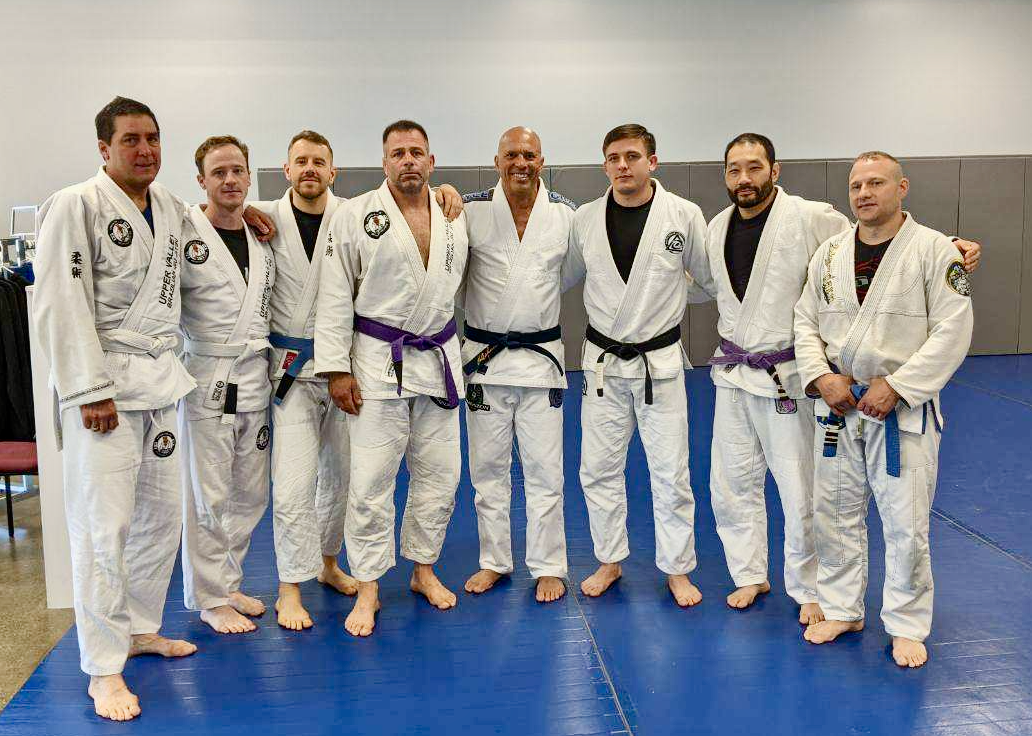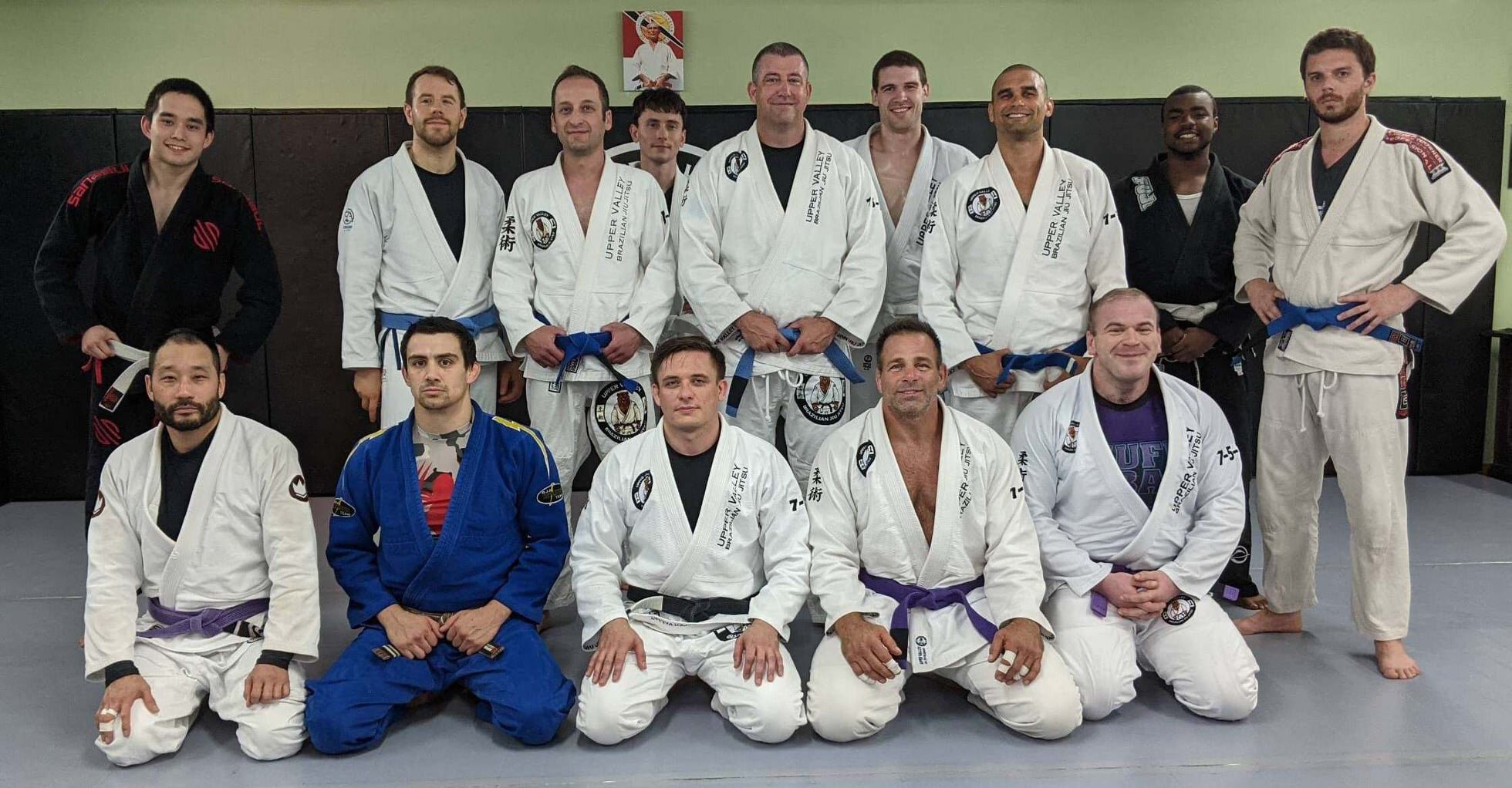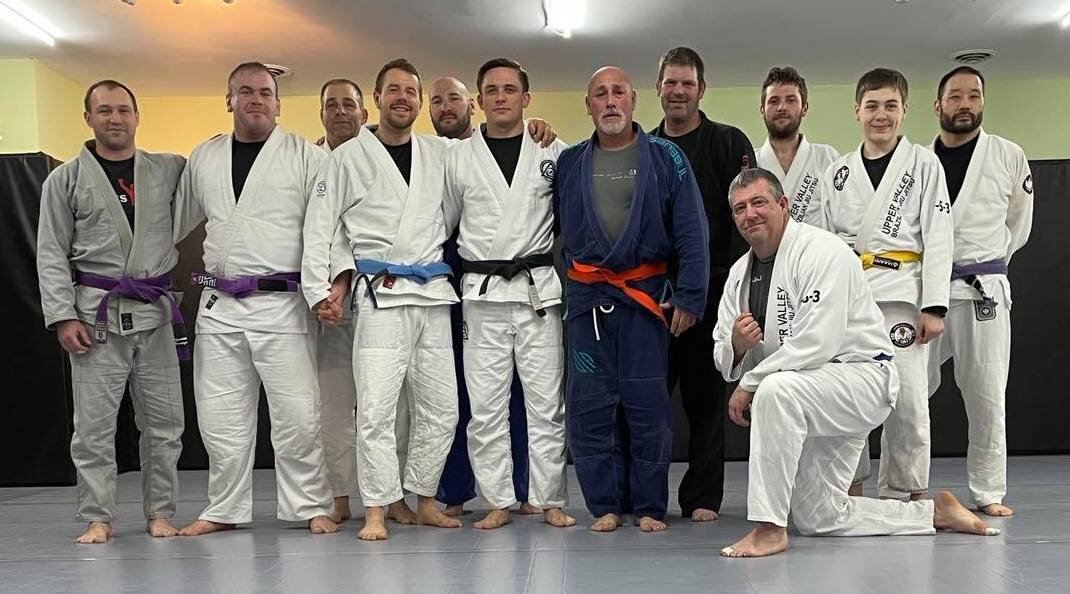Welcome to Upper Valley Brazilian Jiu Jitsu!
With the introduction of Ultimate Fighting Championship (UFC), Jiu Jitsu has proven it’s superiority as a martial art. Since then, every single successful MMA fighter has added Jiu Jitsu training to their arsenal, regardless of their base style. Jiu Jitsu is also widely used by athletes and enthusiasts who want to stay safe and win in competitions and on the street.
Jiu Jitsu is the most intelligent form of grappling. It is a triumph of intelligence over brute force. The more Jiu Jitsu technique you develop, the more you can overcome and even dominate bigger, stronger, and faster opponents.
"Always assume that your opponent is going to be bigger, stronger and faster than you; so that you learn to rely on technique, timing and leverage rather than brute strength."
-Helio Gracie





Why should you try Jiu Jitsu?
1) It is a lot of fun. Just ask anyone who does it.
2) It is a great way to get in shape. Don’t try to get in shape first and then try Jiu Jitsu. Get in a better shape by doing Jiu Jitsu.
3) It is safe. The manner in which we practice live sparring is safe. While Jiu Jitsu can be applied in MMA and on the street, when we spar in class, there are no strikes (just grappling). Moreover, when someone gets caught in a submission they simply tap. This serves as an acknowledgement that your opponent has put you in a check mate. At this point, the winner releases the pressure and the sparring stops.
4) Jiu Jitsu is a very effective martial art. Brazilian Jiu Jitsu has become an essential part of a toolkit of any successful MMA fighter. There are countless instances of people successfully using it for self defense from would-be assailants. Moreover, because of its effectiveness it is increasingly becoming a mandatory part of training for police and militaries around the world.
5) Jiu Jitsu has many mental and psychological benefits. You will become more confident, patient, and you will learn how to solve problems under pressure.
History of Brazilian Jiu Jitsu
Mistuyo Maeda, also known as “Count Coma” was a Japanese Jiu Jitsu instructor who came to Brazil in the early 1900s. An influential Brazilian businessman Gastao Gracie helped Mr. Maeda get established. In return, Maeda offered to teach traditional Japanese Jiu Jitsu to Gastao’s oldest son, Carlos.
Some years later Carlos along with his younger brothers began teaching Jiu Jitsu. Carlos’s youngest son, Helio, was very slender and meek physically. In fact, he was so physically frail that even though he showed interest in Jiu Jitsu at the age of 14, for the first two years he just watched his brothers train.
Instructor: Serge Severenchuk
Serge started training Brazilian Jiu Jitsu in August of 2006. From the start he was an active competitor in Gi and No-Gi Jiu Jitsu tournaments. Looking to challenge himself and test his Jiu Jitsu skills under a more challenging rule set, Serge fought in a Mixed Martial Arts fight in June of 2009. He choked out his opponent with a triangle choke in 1 minute and 29 seconds. Once graduate school got in the way, Serge left MMA competitions behind him, but he continued training and competing in Jiu Jitsu. In October of 2019, after 13 years of persistent hard work, Serge was awarded his black belt by the legendary Brazilian Jiu Jitsu master, multiple-time UFC world champion, and UFC hall of famer, Royce Gracie.
Serge with his professor from Chapel Hill Jiu Jitsu, Mazy Heydary, right after receiving his black belt in October of 2019
Vision/Philosophy
To make great martial artists, and even better human beings by using Jiu Jitsu as a tool.
To become a good Jiu Jitsu fighter requires a serious time commitment. You will develop skills that you can show off on the mat and in competition. In some isolated instances, you might even use these skills to defend yourself, your loved ones, or stand up for those who can’t stand up for themselves. There is a place for all of that, but Jiu Jitsu has a much bigger imprint on who you are. You improve your ability to focus, think fast, stay calm, and stay patient under pressure. You face your limitations, learn a lot about human psychology, improve your analytical skills, and get to work on your character (pressure tends to bring your weaknesses to the surface). Perhaps more importantly, you learn principles of Jiu Jitsu that underly many techniques. All of these can be applied outside of the mats.


